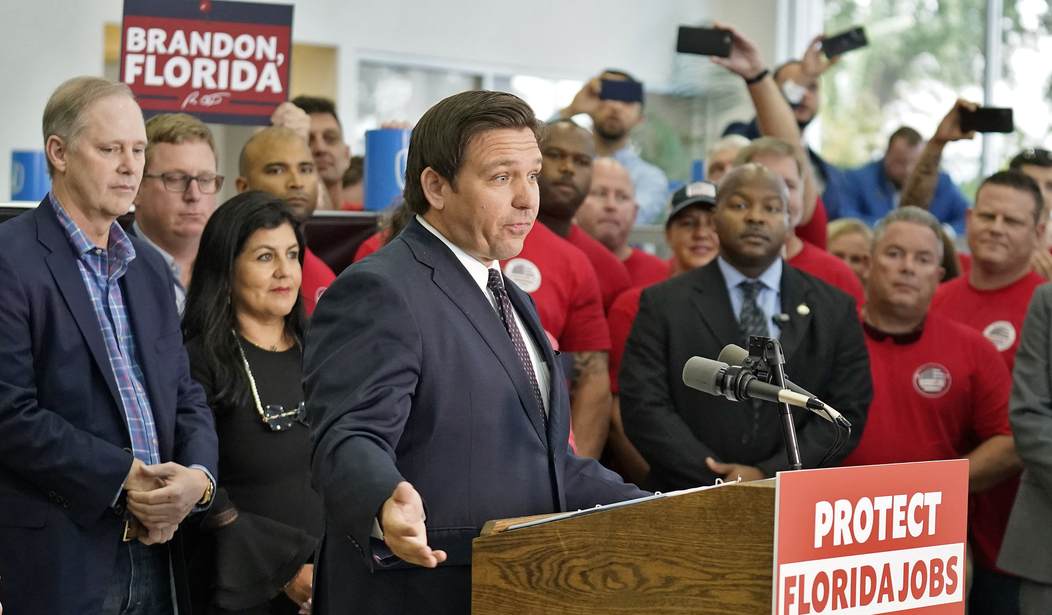The lull between Election Day and the opening of the annual Florida legislative session is, by tradition, trial balloon season in the Sunshine State.
This period of testing themes and issues is Florida’s version of political two-a-days, when intense campaigning by special interests and advocacy groups work legislators ahead of their official lawmaking interval. (Do not let your yuletide spirit lead you to sympathize with officeholders; they volunteered for this.)
Making the rounds just now are suggestions that Something Ought to Be Done about Florida’s unemployment benefit. Why? For openers, fuss critics, because it’s utterly Scrooge-like in its provisions, not only tight-fistedly low ($275 per week, tied for 47th among the states), but also squeezingly, wrenchingly brief (12 weeks, knotted with North Carolina for the nation’s shortest).
Also, goes the argument, it’s been nearly forever — 23 years — since the Legislature tampered with the formula. If Florida’s payouts had kept pace with the shrinking dollar, unemployment benefits would have reached nearly $492 weekly in 2022.
And, finally, the iron is hot: Historically high and stubbornly persistent inflation has millions of households by the financial throat, a fact acknowledged by incoming state Senate President Kathleen Passidomo (R-Naples).
“As we look to the future, Florida’s economy is in great shape. Our unemployment rate is a full point below the national rate. The Sunshine State is on track for record growth this year,” Passidomo said during her post-swearing-in speech. “However, while Florida’s economy is booming, the pain of inflation is very real for Florida families. We see it at the grocery store. We see it at the gas pump. And we certainly see it in the housing market.”
With an emphasis on the second half of Passidomo’s assessment, anyone expecting this extraordinary confluence of circumstances to work on legislators like the haunting of benevolent ghosts is in for a huge disappointment.
Republicans did not sweep every statewide office and swell to a supermajority in both houses of the Legislature last month by promising to plump the pillows of those who have lost their situations. They did so, at least in part, by vowing to make Florida even more Florida: open for business and eager for opportunity.
Sunshine State lawmakers embrace the wisdom of Ronald Reagan, who famously, if indirectly, framed the unemployment benefit question thusly: “If you want more of something, subsidize it; if you want less of something, tax it.”
The subsidizing portion of the equation is abundantly straightforward: The higher the weekly unemployment check, and the longer the payments last, the less incentive the recipient has to find remunerative work.
The burden of taxation falls on employers, who pay into a state-run insurance fund. Benefits that are high and prolonged require beefier unemployment premiums. The upshot: Employers are incentivized to limit job growth and/or tamp down compensation. That argument might not impress lawmakers in Massachusetts or Washington (where maximum weekly unemployment benefits are $823 and $790 respectively), but it resonates in Tallahassee, where Florida’s 2.7% unemployment rate is significantly lower than in Massachusetts (3.5) and Washington (3.8).
Those comparisons, plus the unpleasant consequences of large and prolonged federal unemployment payments during the pandemic will loom large when legislators convene March 7. Lawmakers may have a look, says House Speaker Paul Renner (R-Palm Coast), but that might be all it will be.
After all, Floridians are never more than a two-hour drive from some of the world’s best beaches.
“People can be rational and say, ‘if I’m making more money getting benefits than working then maybe I’ll take a long vacation,’” Renner told reporters recently. “We can always look at it, right? Because we are in these inflationary times. But I think we need to be careful to make sure we don’t create the clearly unintended consequences that took place as a result.”
If forecasts of a 2023 recession prove true, Florida’s philosophy of unemployment benefits will certainly fall under increased scrutiny. When that happens, state leaders tempted to quell the pain would do well to remember the hard lessons from perverse incentives of 2020.
Sometimes, tough love is the best love of all.







